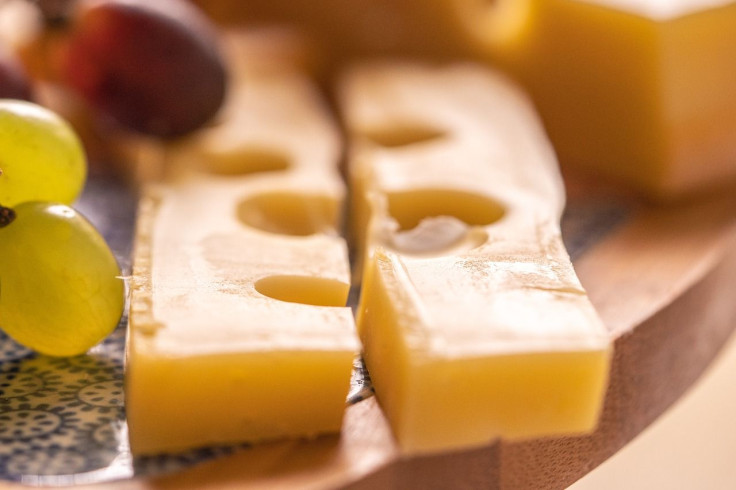This Type Of Cheese May Benefit Your Bone Health
KEY POINTS
- Jarlsberg cheese is said to be high in vitamin K2, which is important for bone health
- Eating Jarlsberg cheese "had a positive effect on osteocalcin" of the participants
- The results have to be interpreted with caution, experts say
Can eating cheese help prevent bone thinning? Consuming a bit of Jarlsberg cheese every day may benefit bone health, a new study has found.
Jarlsberg is a buttery and nutty cheese from Norway that's made from pasteurized cow's milk. Previously, the cheese has been found to boost osteocalcin, which is the hormone that's linked to strong bones and teeth, the British Medical Journal (BMJ) noted in a news release.
However, it is unclear whether it is a general effect of cheese or if it's specific to Jarlsberg cheese.
For their study, the researchers looked at 66 healthy female volunteers. Of them, 41 ate 57 grams of Jarlsberg a day, while 25 ate 50 grams of Camembert a day for six weeks. After the six weeks were up, those in the Camembert group switched to Jarlsberg for another six weeks.
Vitamin K2 is "important for bone health." Jarlsberg cheese is a "good candidate" for studies on vitamin K2-related health benefits linked to cheese because it has high vitamin K2 content, the researchers explained in their paper, published in BMJ Nutrition Prevention & Health. The idea for the study was to see whether the previously observed effect was "not a general cheese effect."
The researchers found that eating Jarlsberg daily indeed "had a positive effect on osteocalcin." Specifically, osteocalcin and vitamin K2 levels increased in the Jarlsberg group after six weeks. On the other hand, levels remained the same among those in the Camembert group, but increased "significantly" once they switched to Jarlsberg.
"The effect of daily Jarlsberg intake on increased s-osteocalcin level is not a general cheese effect," the researchers wrote. "Further research may reveal the possibility of recommending Jarlsberg cheese as prophylactical treatment or even an addition to antiresorptive treatment in osteoporosis."
Of course, the results of the study should be interpreted carefully.
"As this is a small study in young and healthy people designed to explore novel pathways linking diet and bone health, the results need to be interpreted with great caution as the study participants will not necessarily be representative of other groups," said Professor Sumantra Ray of NNEdPro Global Centre for Nutrition and Health, which co-owns BMJ Nutrition, Prevention and Health. "And it shouldn't be taken as a recommendation to eat a particular type of cheese."
Some experts also raised doubts about the results as the study was reportedly part-funded by the manufacturer of Jarlsberg.
For instance, Tom Sanders, professor emeritus of nutrition and dietetics at King's College, London, said that it's "unlikely" that the effects will be specific to Jarlsberg cheese, reported The Guardian.
"Recommending Jarlsberg cheese as a beneficial food for bone health would need to be balanced against existing dietary recommendations," Dr. Simon Steenson, a nutrition scientist at the British Nutrition Foundation, added.

© Copyright IBTimes 2024. All rights reserved.






















